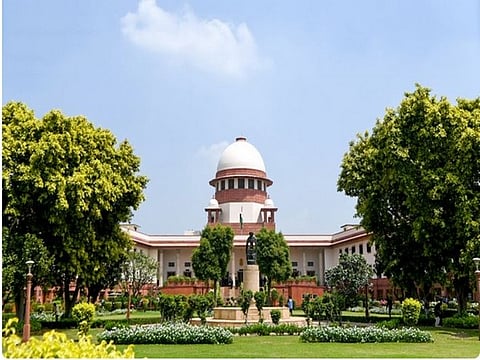

NEW DELHI: In a significant ruling, the Supreme Court has ordered that the High Courts can't quash the FIR when larger economic offences are manifest, even if there is a civil transaction history between parties.
"Financial frauds need deeper scrutiny and cannot be brushed off as civil disputes. Dummy firms, suspected conspiracy etc. warranted probe," said, a two-judge Bench of the apex court, led by Justice Bela M Trivedi and Justice Prasanna B Varale, in an order recently.
The bench of the top court passed the judgement on hearing a case involving Dinesh Sharma against a company.
Lawyer and Advocate on Record (AOR), Krishnamohan Menon, appearing for the appellant, Sharma, said this ruling, lays down the principle that-financial disputes involving manifest fraudulent intent or larger Economic Offense should not be dismissed as mere civil matters without proper investigation, even if there is civil/commercial transaction history between the parties.
Setting aside the Rajasthan HC order, which quashed the FIR, against the company -- Emgee Cables and Communication Ltd -- the top court said, the peculiar facts and circumstances of the present case warrants thorough investigation as there was a huge amount involved.
"It is true that there is a growing tendency of parties to rope in their counterparts to harass and extract monetary transaction. It is the duty of the Court to consider the facts of each case, in its proper perspective and then to arrive at the conclusion as to whether the case warrants investigation or the proceedings are required to be quashed. The peculiar facts and circumstances of the present case warrant a thorough investigation as there was a huge amount involved," said the SC in its order.
The judgment underscores the importance of judicial scrutiny in cases where financial misconduct is alleged, ensuring that criminal liability is not evaded under the guise of contractual disputes.
The Apex Court, while doing so, has drawn an exception to the general principle that FIRs (First Information Reports) can be quashed when the Civil/Commercial transaction history between the parties indicates that the dispute is of a civil nature.
The SC has held that if Economic Offences in the form of creation of shell companies to siphon money and materials is clear from connected FIR (S), the Enforcement Directorate Orders or otherwise from the records, the intention to cheat is manifest and the High Court cannot quash an FIR filed alleging under Section 420 (Cheating) of the Indian Penal and (IPC) and other sections of the law.
Reversing the Order of the Rajasthan HC which had quashed the Subject FIR filed by the Appellant-supplier (Dinesh Sharma) against the accused Respondent-buyers, the top court said, "Financial frauds demand a higher degree of judicial scrutiny, given their far-reaching consequences on the economy, investors, and financial institutions. Thus, when an accused is engaged in conduct akin to financial fraud, courts must be cautious and weigh all material circumstances before exercising their power under Section 482 CrPC to quash proceedings."
Restoring the criminal proceedings, against the company -- Emgee Cables and Communication Ltd -- the top court said, the HC cannot ignore material produced before it and proceed only on the premise of civil/commercial transaction history between the parties.